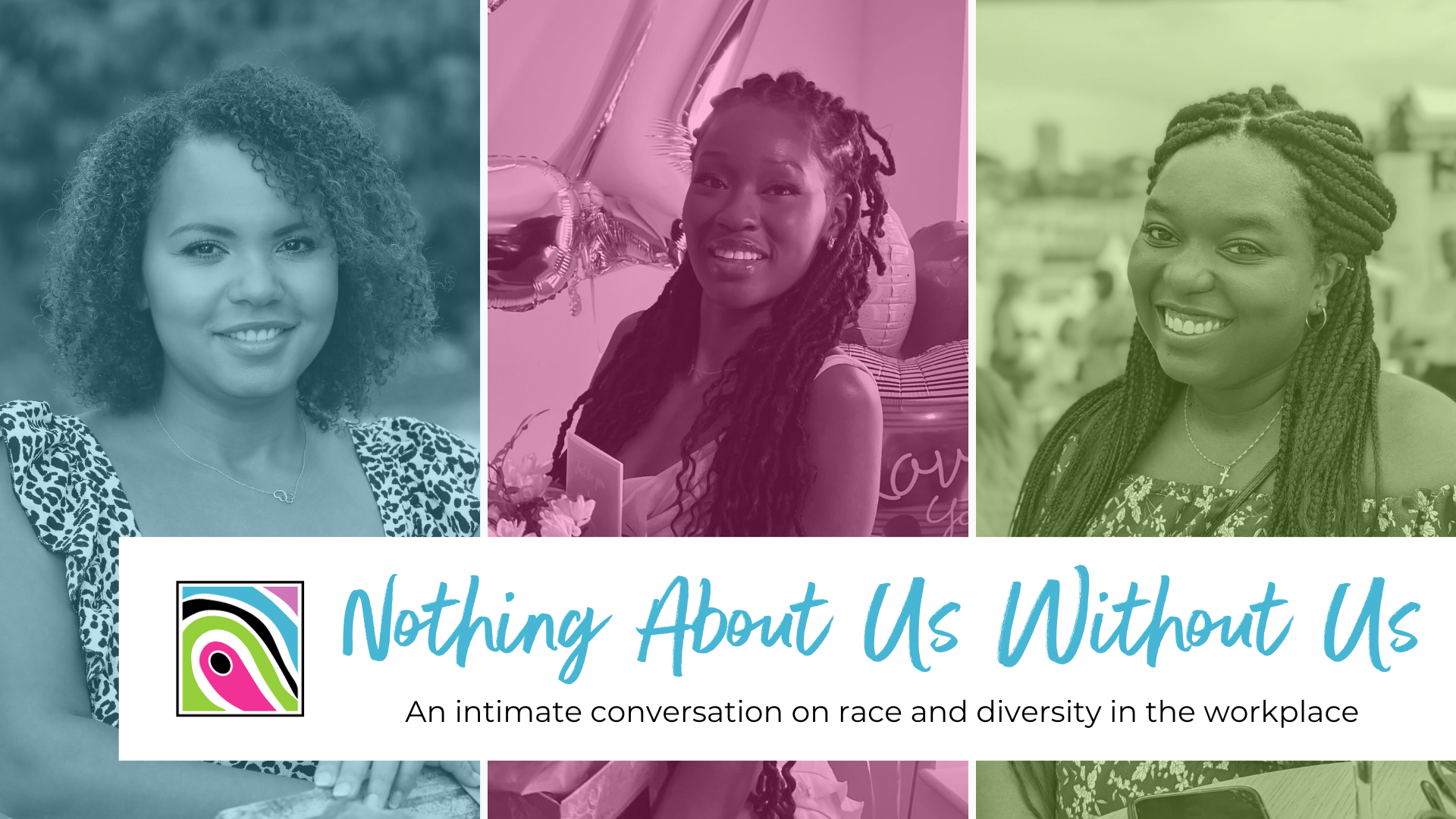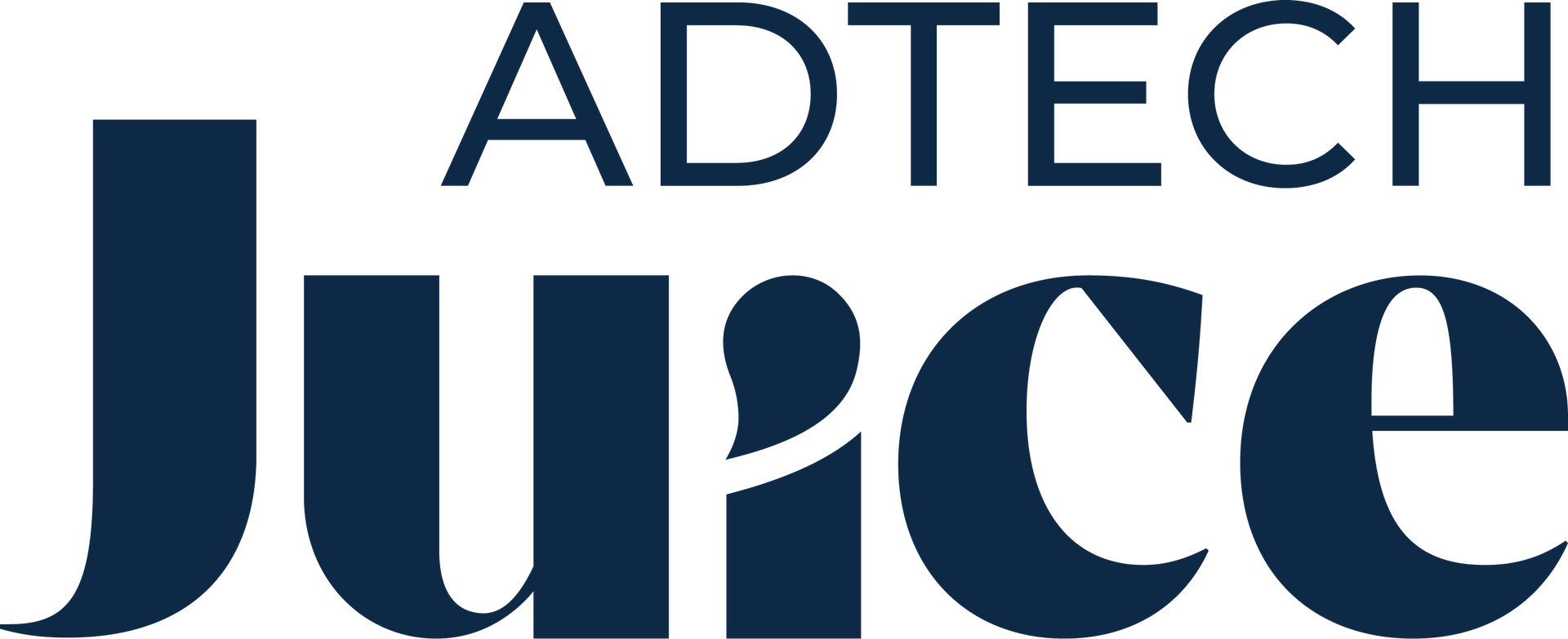Nothing About Us Without Us
A candid conversation on race and diversity in the workplace

Race, diversity and equality have been prominent topics through the industry this year. It’s strange to think back on it now, but 5 years ago, you’d be hard-pressed to find an open conversation about race in any major office, let alone a panel focused solely on racial and ethnic diversity at an event like Cannes Lions. But now, with 76% of employees declaring they value diversity in the workplace and over 56% of companies seeking to diversify their workforce with every new hire, it seems almost everyone has their eyes and ears open.
Those who don’t are quickly going to find themselves falling behind. In the advertising and media industries where creativity and thought leadership reign supreme, diversity is the lifeblood that fuels progress and innovation. Yet, while the landscape has evolved, there's no denying that the industry has its struggles with representation and inclusivity. In an era where authenticity is paramount, the demand for genuine, diverse voices has never been greater.
With Black History Month in Europe upon us again, Akinyi Odhiambo, Camealia Xavier-Chihota and Faith Ilori from The Digital Voice™ sat down to talk about their experiences as Black women at three different levels of their career, and to look at what progress can be made in the future. So how can companies look to lead the conversation and make positive change through the end of 2023 and beyond?
Let diverse voices lead the work, but recognise that it is work
For Camealia, now in a senior management position, the conversation on race is an important one to be leading. “I’m in a position of seniority now that I didn’t have before, so I feel the pressure,” Camealia says, “and it feels like I have a duty.”
Discussing her position as a Black woman in the workplace is new territory for Camealia. “Historically, I have never spoken about my race in the workplace. I came to work, I did my job, and I was the Buyer Camealia, the Marketing Manager Camealia. And then in 2020, I was asked to do an interview for Black History Month as ‘Camealia, the Black girl’.”
As pointed out by advocacy collective
Group Black at Cannes this year, the media industry began making huge strides towards DE&I initiatives during the racial injustice crisis amidst the pandemic in 2020, following the death of George Floyd. “Sadly, he's not just a person anymore. He's a moment in time when things changed,” Camealia notes. “It made people stand up and listen. Now race is a conversation I feel comfortable having in the workplace.”
Camealia’s interview in 2020 was far from an isolated experience – across the world, Black employees were asked to speak up on racial injustice and give advice on approaching diversity. Overall, this was a very good shift. You can’t gain a full perspective without representation from the people involved, nor can anyone speak accurately for experiences that are not their own.
But in the same vein, it’s important to note that diversity & inclusion, work is work. Being a speaker and a representative takes time and energy, both physical and emotional. Companies must avoid tokenism at all costs – the practice of making only a symbolic effort at diversity to give off the impression of racial equality and inclusion – and avoid burdening their employees with the role of being a singular spokesperson.
“In my old job, they wanted me to be the representative and tell them what they should be doing going forward,” Akinyi says. “I never wanted to be seen as just ‘the Black person in the office’.” But when there’s a wide range of representation, the emotional burden is not on the shoulders of just one person.
It’s an important point across all ranges of diversity. Whether it’s out of ignorance or ease, diverse groups tend to be thrown together to categorise experience, but the experiences and opinions of one Black woman to another are as unique and varied as any two individuals, no matter their background.
Hire diverse talent at all levels of your organisation
One of the biggest joys and values of diverse talent is the endless range of perspectives and knowledge it can bring, alongside breaking down barriers and stereotypes alike. But for a long time, employers have been failing to bring the talent in, especially at higher career levels. Only 1.4% of managers, directors and senior officials in the UK are Black. Even less are Black women.
Faith says that having a Black manager builds her confidence. “There’s an extra level of comfort that I can speak about anything, and that’s empowering. You’re told early that the world of work is full of old, white men. I know that I’d be uncomfortable in that world. I’d be a nobody.”
As Black women, Akinyi, Camealia and Faith all sit at the intersection of racial and gender diversity. “I don’t think it should be seen as a disadvantage,” says Camealia, who juggles being a mum of two as well as being Marketing & Multimedia Lead at The Digital Voice™ and running Medway Culture Club, a charity focused on education around diversity. “Intersectionality should be seen as a strength, because not only can you provide representation, but you’ve got a different perspective. Any organisation should see that as valuable.”
Camealia goes on to say, “From my perspective, I want to hear what you’ve got to say. Because the three of us are all Black women, but we’re at different levels of our careers, we’ve grown up with different experiences and we’ve all got different input to give.”
As Akinyi points out, one of the things The Digital Voice™ gets right is that Julia hires for individual talents, not to tick off either a diversity quota or a prerequisite career history. The results show for themselves, in a pool of talent that happens to be diverse, and includes three incredible Black women. But it’s not the case everywhere. “Obviously, we're 100% remote,” Camealia points out, “and we're really female-led and driven, but when you step out of that bubble, it’s not the same.
Mentorship is a tide that lifts all boats
The first question in the interview Camealia gave was ‘What does being Black mean to you?’ – all three women are in agreement that there’s no simple answer. “I'd never asked myself before,” Camealia adds. “My whole life growing up in Kent and being definitely in the minority, you get used to it.”
“Over time, you build up a thick skin and you’re so desensitised,” Faith explains, on the subject of day-to-day discrimination, something she’s learned to brush off. “Other people notice it more than you do. It can be uncomfortable.”
Mentoring provides one outlet for understanding and combating that discomfort. As with all things, education is a vital step in change, and mentorship programmes like
Bloom
and
lollipop mentoring provide a platform for learning to advocate for yourself, and for finding a support network of other people who share your experiences. Bloom work with women in the industry, and lollipop are aimed specifically at mid-level Black women in the advertising industry.
“It’s quite interesting seeing two organisations doing amazing things,” says Akinyi, who is at the start of her mentee journey with lollipop. “But specifically for me, it was great seeing one focusing on my demographic. Because as so many mentors said at the last meeting, they never had that for themselves when they were starting out.”
“I’ve never had a mentor,” Camealia agrees. “I offer mentorship because I see the value and see how it’s helped people around me flourish. But in my journey to this position, it wasn’t a thing. I definitely think as a manager I would have benefited from that senior level inspiration or conversation with someone who I could relate to.”
Mentoring benefits employees at all levels – for those just starting out in their careers, it can bring the confidence and understanding required to flourish. For those at higher levels of their careers, it can bring guidance on key decision making and access to networks.
Speak up and speak out
As Camealia points out, a little representation goes a long way. Not being alone can be the difference between confidence and discomfort. With groups like
Group Black,
Black At Cannes, and
AOP Crunch
bringing discussion and education to major industry events, and mentorship organisations like
lollipop mentoring,
Bloom,
Creative Equals,
MEFA
and
DigiLearning, it’s obvious that speaking up is having an effect.
“Inclusion was a very hot topic,” Akinyi says, of Cannes Lions earlier this year. “It's really nice to know that other people were coming and experiencing it for the first time, I felt like it was a very welcoming place.”
“Although we were still the minority, it felt like there was a tribe of people who were representative at various levels,” Camealia adds, noting that it was great to see so much available for entry level and people looking to break into the industry.
But that’s not to say that the work is done. As Senior Events Executive, Akinyi was hands-on with keeping track of what was going on in the diversity and inclusion space during this year’s Cannes Lions, something requested by clients. Cannes saw a number of panels this year on diversity, which was a start – “I was proud to see it,” Akinyi notes, “but it’d be nice next year to see that increase in all aspects, not just race.”
“It is not your duty to finish the work, but neither are you at liberty to neglect it”
- Rabbi Tarfon, Israeli sage
What’s clear is that the industry stands at a critical juncture. Akinyi, Faith and Camealia’s experiences are just a microcosm of the larger diversity narrative, but keeping the conversation open, loud and proud is a non-negotiable for 2024.
The worst thing a company can do is bury their head in the sand. Whilst it may seem intimidating to address issues with inclusion and diversity within a company, it really shouldn’t be: by treating everyone with kindness and respect, opening yourself up to listen to the perspectives of others and be educated, and offering support and opportunities for all, the efforts will start to come naturally. If mistakes have been made in the past, what really matters is what gets done next. And as with so many things, education is a vital step.
“I think it's really important legacy to leave behind,” Camealia says, of speaking up and advocating diversity. “All too often ignorance is the reason for racism and discrimination of any type. It's just not knowing.”
If we start with education and we focus on bringing enough voices to the table, we can change the narrative not just for ourselves, but for future generations.

Ren Bowman is Senior Marketing and Multimedia Producer at The Digital Voice™, a first-class graduate in Creative Writing and an award-winning podcast producer. They’ve written for a range of industries including tech, entertainment, education, business finance, and lifestyle. Outside of work, they are an activist for social justice, especially Women’s and LGBTQ+ rights.



